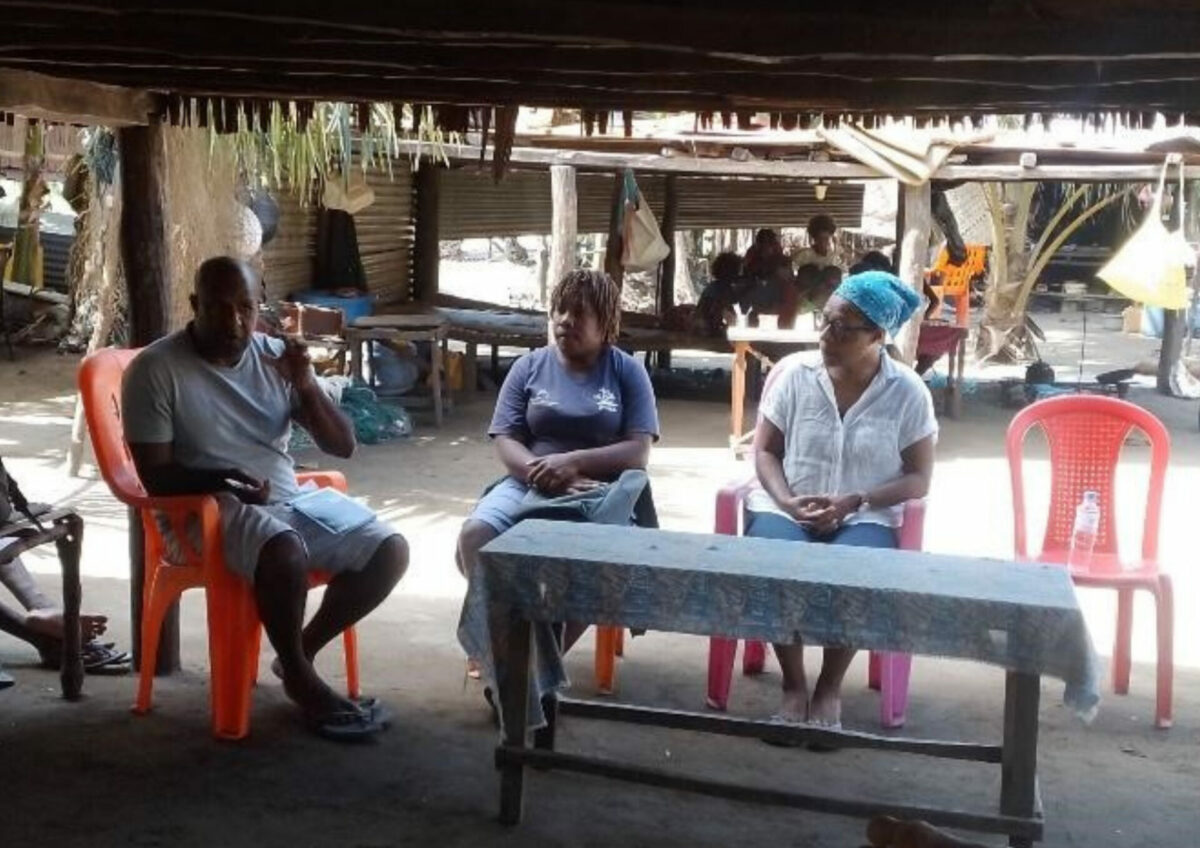South Fly District, in the Western Province of Papua New Guinea, is renowned for its abundant marine resources. For generations, local people have maintained the delicate balance of utilisation and conservation of the natural world through the implementation of customary laws. Recognising the importance of preserving marine resources, and the value of local knowledge to this process, the Arafura and Timor Seas Ecosystem Action Phase II (ATSEA-2) project is helping communities in South Fly to gain formal recognition of their customary laws and integrate them into local-level government legislation.
Customary practices are determined by the observations and beliefs of local communities, who notice when there are fluctuations in specific marine resources and then take the appropriate action to arrest the decline. According to customary law, those who do not own land or fishing rights cannot fish within certain areas; outsiders seeking to do so must first obtain permission from the legal owners, who grant them access on the condition of compliance with particular stipulations.

drafting and introduction process
In addition, the whole region regularly observes “Sabi,” a no-take area or period, during which fishing is prohibited. This allows fish stocks time to recover, especially in preparation for planned feasts or festivals. These practices have helped maintain ecosystem health for centuries. However, although deeply ingrained in local culture, these practices are yet to receive formal, legal recognition.
To initiate the legalisation process, ATSEA-2 has engaged the services of a legal consultant, who has developed a comprehensive guide to the law-making process and presented it to Local-Level Government (LLG) members. This preparatory step equips them for the legislative journey, which involves vetting the proposed law by the Department of Provincial and Local-level Government Affairs (DPLGA). Subsequently, the LLG will table the bill in the Assembly, engaging in debates and voting procedures. Upon successful passage within the LLG Assembly, the law will be forwarded to the DPLGA for final approval and formal gazettal. The specific goals of LLG Law are to adopt the existing customary practised rules. Provisions for Sabi should also be considered vital in the LLG Law.

(seated first from the left) and South Fly District Administrator Tawa Gebia (seated next), along with the Legal Consultant,
discussing the bill drafting process
From 19-22 July 2023, another significant step was taken when the project team from the National Fisheries Authority (NFA), along with various marine scientists, visited South Fly District in order to discuss the drafting of the Fore-coast Artisanal Fisheries Management Plan (FAFMP) Bill.
A stakeholder consultation was held on 20 July 2023, bringing together key figures such as the Provincial Government, South Fly District Administration, LLG representatives and other relevant stakeholders. Discussions during the stakeholder consultation focused on protecting marine resources from overexploitation. Data and information were collected in regards to the fishing gear used and the types of fish harvested, along with market proximity for the trade of fisheries products.
The Western Provincial Government has been a supporter of the ATSEA-2 project’s efforts to incorporate locally practised rules into local-level government laws. Rupert Tabua, Deputy Provincial Administrator (Natural Resources), has emphasised the importance of addressing illegal fishing activities that threaten reef ecosystems. The Western Provincial Government has supported the effort by providing conference facilities and working with hotels to accommodate the many stakeholders involved in this process.
Looking ahead, the FAFMP Bill, when passed, will represent an historic milestone for the coastal communities of Papua New Guinea. They will become pioneers in the adoption of local-level government laws concerning marine environment conservation and ecosystem management, led by traditional customs. This monumental achievement is eagerly anticipated by stakeholders, who envision far-reaching impacts stemming from the bill’s implementation at the grassroots village level.
Nevertheless, while significant progress has been made, several critical steps remain in the bill’s journey towards enactment. The Bill is currently undergoing rigorous vetting procedures and awaits consideration for passage by the LLG. It must then be approved and formally gazetted by the DPLGA. One notable challenge on this path is the pace at which governmental process tends to move – a factor beyond the control of project stakeholders. To address potential obstacles and ensure the bill’s successful realisation, workshops are planned to conclude the bill drafting process, helping to navigate the complexities of government bureaucracy and expedite its transformative impact on marine conservation and community management practices.
By Joe Kiningi and Kenneth Yhuanje


